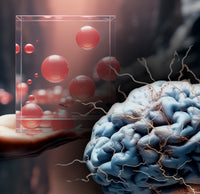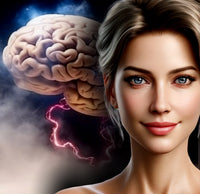3. Testosterone and Aggression
Challenging the Direct Link
The relationship between testosterone and aggression is not as straightforward as often portrayed. At the same time, higher levels of testosterone are associated with increased aggression in various species. Many scientists, including Sapolsky, emphasize that testosterone amplifies the aggression response rather than directly causing it. This means that testosterone increases the likelihood and intensity of aggressive behavior when an organism is predisposed to react aggressively. This distinction is crucial because it suggests that social, environmental, and psychological factors significantly determine whether an individual will display aggressive behavior. Thus, in simple terms, this means that testosterone lowers the threshold to reveal the essence of the drives an individual currently has.
The Role of Testosterone in Stress, Aggression, and Sex Drive
Many, including Sapolsky, point out that testosterone levels rise in anticipation of a competition or confrontation, a response that can be seen as preparing an individual for an aggressive interaction. However, the outcome of these interactions can also influence testosterone levels. For example, winning a competition can increase testosterone levels, which further boosts confidence and the likelihood of engaging in future competitions or confrontations. However, that normal response differs from the chronic stress many experience, and we often deal with it as part of the Everyoung Health Method at the Everyoung.com Research Centre.
Chronic stress can lead to a decrease in testosterone levels, which could potentially reduce aggression and sex drive. This interplay between stress and testosterone levels underscores the complexity of hormonal regulation and its impact on behavior.
In terms of sex drive, while testosterone is certainly a key driver, however, we should be cautious against oversimplifying its role. Many reputable scientists have pointed out the multifaceted nature of sexual desire, which involves a myriad of psychological, social, and biological factors beyond just testosterone levels.
Related Studies
Various studies across species support such assertions about testosterone and stress. For example, research in non-human primates has shown that changes in testosterone levels can affect dominance hierarchies and aggression. Still, these effects are context-dependent and influenced by the animal's social environment and status. In humans, studies have found that social and psychological factors moderate the relationship between testosterone and aggression. For instance, individuals with higher testosterone levels may show increased aggression in competitive situations but not necessarily in non-competitive contexts.
One pivotal study often cited is the "Challenge Hypothesis," originally formulated to describe testosterone dynamics in monogamous birds but later applied to other species, including humans. This hypothesis proposes that testosterone levels increase in response to social challenges, such as competition for mates, which can lead to aggressive behavior. However, this response is modulated by the animal's social environment and mating system.
In summary, research in the field suggests that the relationship between testosterone, aggression, and sex drive is complex and influenced by a multitude of factors. Testosterone does not directly cause aggression but rather amplifies the potential for aggressive behavior in the proper context. This nuanced understanding challenges simplistic narratives and highlights the importance of considering the interplay between biological, environmental, and psychological factors in shaping behavior.







